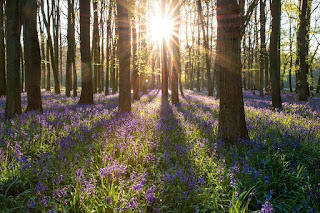Civil Society and the rebuilding of post-Covid Inverclyde
I was very interested to see a digital copy of the 1935 Gourock Directory posted on social media last week.
There
are dozens associations listed in the Gourock Directory; From cooperatives,
guilds, fraternities, friendly societies, libraries, reading rooms, to a League
of Nations Union branch, various social clubs, working mens clubs, political
party branches, trade unions and numerous sports clubs and Church denominations.
Reading
this fascinating piece of social history highlighted just how associational and
voluntary our community was back then, and how strong our civil society was too.
It’s clear that in those days, people tended to do more things collectively,
within institutions and not so much as individuals.
This
was also a time when small towns had their own thriving cultural life, long before
the dominance of big cities and the centralisation of capital, subsequently closing
down many of our local banks and financial institutions.
These
are spaces where people can build human relationships together and have some power
and autonomy over their own lives.
Sadly,
civil society is in decline and our communities are now much more atomised and individualistic,
this is partly why we have a loneliness pandemic.
However,
amid all the deep heartache and tragedy which our community has endured over
the last few months, we have at least rediscovered the power of voluntary
actions as we’ve watched a flowering of civil society in response to Covid19.
Indeed,
it has been positive to see so many ordinary volunteers from all walks of life
stepping up and coming together to support our key workers and NHS. It has been
especially heartening to see local charities and voluntary organisations working
alongside our local authority, churches and local businesses. Community groups
have been supported by councillors, council workers, business men and women and
most importantly, by volunteers from the community.
Meanwhile, our community centres and hubs have been turned
into food distribution centres for all those who are shielding or facing food
insecurity as a result of the pandemic.
It
is exactly this method of joint working and collaboration which will enable our
community to recover from Coronavirus in the months ahead.
Yet, a restoration
of civil society will not only empower us to defeat Coronavirus. Volunteering and
the rebuilding of civil society could also help us to overcome the evils of racism
featuring so prominently on our news at the moment.
William Beveridge writing on the importance of voluntary action as a way to overcome racism, in the years after the Second World War, had this to say, “The first call should be on developing citizens to take the responsibilities of democracy in choosing leaders and deciding on public issues. The making of a good society depends on citizens acting individually or in association with each other, so the night’s insane (Nazi) dream of power over others, without limit and without mercy shall fade and humankind shall bring back the day”.
So let’s
create new associations, ones which allow us to have a voice and together we will rebuild a post-virus Inverclyde based
on trust, tolerance and inclusion.



